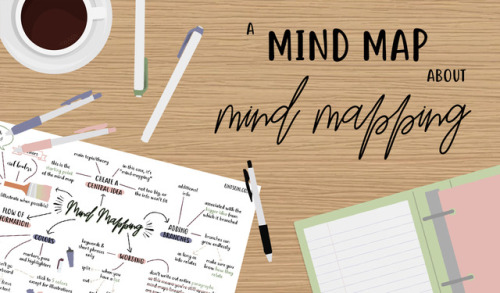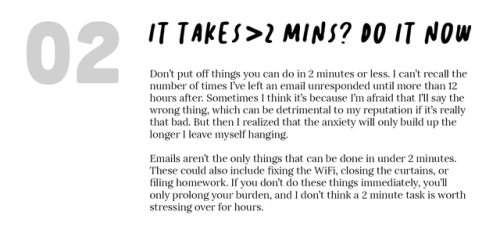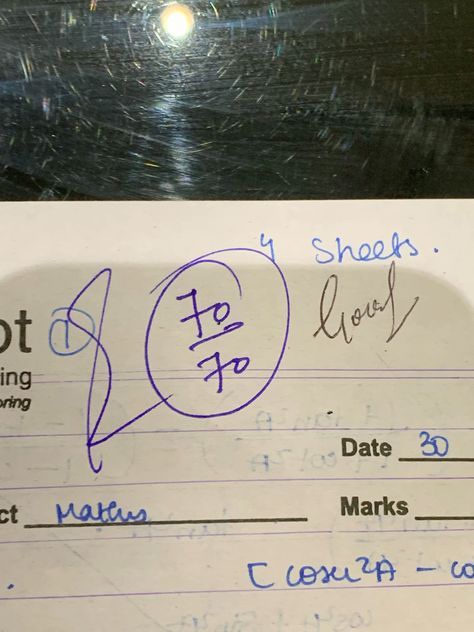Apps I Use To Learn Languages
Apps i use to learn languages
1. Babbel

This is a language app that also teaches grammar & offers grammar exercises. You can practise the vocab words you learned & it teaches you about the people & culture of your target country.
However, it only offers 14 languages (English, German, Spanish, Italian, French, Russian, Portuguese, Polish, Turkish, Norwegian, Danish, Swedish, Dutch, Indonesian) and you need a payed subscription to unlock the courses and can only learn one language at a time.
2. Duolingo

This is a language learning app that offers dozens of languages, even fictional ones from Game of Thrones & Star Trek. You can access all courses without subscription and can learn several languages at a time.
However, it doesn't offer any grammar exercises and you can't revise the vocab you learned.
3. LingoClip

In this app, you can listen to songs in your target language & have to fill in the gaps in the lyrics. You get 3 free songs per day without a subscription.
The languages they offer are English, Spanish, Portuguese, Italian, French, German, Dutch, Chinese, Japanese, Korean, Turkish, Polish, Swedish, Finnish, Catalan.
4. Beelinguapp

This app helps you practice reading texts in your target language by showing you the text in your native language & in your target language and reading it to you sentence by sentence.
The languages they offer are English, Spanish, Portuguese, French, Italian, German, Japanese, Russian, Chinese, Hindi, Turkish, Korean, Arabic, and Swedish.
5. LingQ

This app works similarly to Beelinguapp, but you can mark any words you know and don't know and practice the ones you didn't know.
The languages they offer are English, French, Spanish, Japanese, Italian, German, Russian, Chinese, Portuguese, Swedish, Korean, Dutch, Polish, Greek, Finnish, Norwegian, Czech, Arabic, Hebrew, Turkish, Latin, Romanian, Esperanto, Ukrainian, Belarussian, Catalan, Bulgarian, Persian, Danish, Gujarati, Cantonese, Croatian, Hungarian, Armenian, Indonesian, Icelandic, Malaysian, Slovakian, Serbian, Tagalog, and Taiwanese Mandarin.
6. Quizlet

This is a vocab card app. I really like that it gives you translation suggestions when you type out a vocab word and it recognizes the language automatically. You can also use vocab lists from other users and from specific exercise books or courses, and you can sort your vocab lists into sets and files and share them with others if you'd like. If you subscribe to Quizlet, you can also keep track of your learning.
7. AnkiDroid

This is another vocab card app which i use for learning sign languages. You can put formulas, pictures, videos, and more on the vocab cards and you can synchronise the app with the pc programme.
8. Chatterbug

Chatterbug offers live streams in English, German, French, and Spanish where they explain grammar rules, cultural aspects, idioms, and more. They also offer private language lessons.
9. Slowly

On Slowly you can find penpals around the world that are learning your target language or people from your target language's country that want to learn your native language, so you can help each other.
More Posts from Lokarprincipal and Others
Mexe com minha mente para ver o que acontece ?



A MIND MAP ABOUT MIND-MAPPING
If you know me, you’d know that I am a highly visual person. I love learning from images and layouts, and my spatial intelligence is probably my strongest type of intelligence. Because of this, I often use mind maps to study, and so do a lot of other people. However, there are people who don’t really know how to make and utilize a mind map effectively. That’s what this post is for! Here’s how you can make your mind maps more effective and thus enable you to retain more information. (P.S. you might wanna zoom in)
By no means am I an expert in mind-mapping; these are just some habits I have when making a mind map that successfully does its job of helping me remember the topics I’m studying.
If you have any questions, feel free to drop an ask!
xx jo
how to feel good about yourself when school is kicking your ass.
School’s tough, and when you’re getting hours of study and homework dumped on you every class, it’s easy to feel swamped, and it’s even worse when you feel like you’re not making progress anywhere else either. These things have seriously helped me with my mental and physical well-being, hopefully they can help you too!
1. Get the Forest App. It’s $3 on the app-store, and trust me its $3 well spent. i use this app pretty much whenever I shouldn’t be using my phone. in class, studying, working out, not only does it make sure i stay off my phone, it feels really good to look back on all the time I’ve spent focused throughout the week.
2. If you’re gonna waste time, do it properly. Limit the time you spend scrolling social media to 10 minutes. I can’t count how many times I’ve been on Instagram explore page and suddenly an hour has gone past. This makes you feel crap. If you’re gonna waste time, do it in a way that can be measured. watch a tv show, ted talk, or youtube. make a social media post. It’ll make you feel like you’re spending your time doing something and that’s good in it’s own way.
3. Clean your room. Feeling ridiculously overwhelmed? Clean your room. I don’t care how much work you need to do, or how soon it’s due. If you’re stressed you wont get anything worthwhile done. So clean your room, make your bed, vacuum the floor. It’ll calm you down and make you feel better about yourself. I promise.
4. Leave the junk food to the weekends. I know, everybody says it. But if you’re eating crap 24/7, it’s going to drag you down. I hate the idea of diets, they’re designed for failure and then you feel even worse, but trying to avoid junk from monday to friday helps a lot with your general perception of yourself.
5. Work out. Another cliche! But they’re cliche’s because they work. I don’t care how often you work out or how much you do, just make sure you do it regularly and do enough to feel tired but good about yourself after woulds. it makes a difference. trust me.
6. Do a skin care routine & use face masks If you dont have a skin care routine, you need one. Not a fancy one by any means (some of us are uni students, I know) just a cetaphill cleanser and moisturiser day and night (with any creams / other products you may use) does the trick. It helps maintain routine and feel refreshed. Facemasks will help you feel like a self care goddess, even if they’re $2.
7. Burn candles & paint your nails Get a few cheap candels (just make sure they wont give you a headache) and burn them whilst you listen to music and paint your nails, its incredibly relaxing and makes you feel like you’re really taking care of yourself.
8. Have a hobby Last one! Learn something completely outside of school. Cooking, art, writing, photography, even if you suck, find something you enjoy and do it, you need a break from everything around you.
These things have honestly helped turn my esteem and habits around these past years, it wont happen over night but just remembering to do these things every now and then will help you feel better, I promise.
Legal.
Online class tips for those who hate online classes:
Get blue light blocking glasses if you can. Or sunglasses. They will help eye strain and headaches
Actually listen to lectures and pay attention
Try doing classes when you normally would in person
Textbooks! They are great to help
Take notes during lectures. Treat online lectures like an actual in person class.
Don't sit in bed all day. Be active. It helps you focus when you actually sit down for class.
Listen to the lectures outside if you can!
Start a drinking game with your friends in the class
Get your pets involved!
For people like me who are super anxious and hate talking in class, this is a perfect opportunity to participate and ask question without being in the spotlight
Get cute stationary. You aren't spending on gas and eating out so invest in some cute stationary!
Reach out to your virtual communities for help and interaction, like studyblr
Reward yourself!
Schedule time to sit and focus on school work
Dress up! Be dramatic!
Don't want to sit still? Desk excercises!
Mentors and people in the field!! Find them and email them!
Make bets with yourself
Make your notes into art and hang them around
Have nerdy conversations with the people lucky enough to be stuck with you
Write notes in a foreign language you want to learn
Clean your room so it's suitable for education
Learn that you can cus out your teachers now and they can't hear you
Educational podcasts
See if you can download lectures as mp.3 files so you can listen instead of staring at a screen
It's ok to cry during class
Sit somewhere with a wall that you can blank out at when your eyes get tired
Stretch breaks
Playlists for classes to play when doing work
Naps are valid
Cold, damp rags work wonders for hurting eyes and headaches. Lay back, close your eyes, put the rag over your eyes, and maybe nap
Burn some incense to add liveliness to a boring class
Everyone will love if you send pictures of your pets
Keep snacks and water nearby you during class to avoid getting up and leaving
Print out materials if you can
Get ahead when you can. Do things early. I have a friend who has already finished her classes a month early
CALENDARS
Study break where you don't use electronics or read
Make sure you charge everything over night
Treat it like actual class
Tests are probably open book so organize those notes!!!
Don't want to do work? Just do 10 minutes of it
Uma imagem bem esclarecedora.

Pencils produced in the 1990s with the anti-drug slogan “Too Cool to Do Drugs” were recalled because, when sharpened, they read “Do Drugs”.
Linguistics and Language Podcasts
Looking for podcasts about language and linguistics? Here’s a comprehensive list with descriptions! I’ve also mentioned if shows have transcripts. If there are any I missed, let me know!
Linguistics
Lingthusiasm A podcast that’s enthusiastic about linguistics by Gretchen McCulloch and Lauren Gawne (that’s me!). Main episodes every third Thursday of every month, with a second bonus episode on Patreon. (Transcripts for all episodes)
Talk the Talk Every week Daniel, Ben, and Kylie cover the news in linguistics and tackle a particular topic.
The Vocal Fries Every episode Carrie Gillon & Megan Figueroa tackle linguistic discrimination in relation to a particular group. (Transcripts for some episodes)
En Clair A podcast about forensic linguistics from Dr Claire Hardaker at Lancaster University. Episodes released monthly, with a range of topics from criminal cases to literary fraud. (Transcripts for all episodes)
Accentricity From Sadie Durkacz Ryan, a lecturer in sociolinguistics at Glasgow University. Season one has six episodes.
Field Notes Martha Tsutsui Billins interviews linguists about their linguistic fieldwork.
Language
The Allusionist Stories about language and the people who use it, from Helen Zaltzman (Transcripts for all episodes) (my review)
Grammar Girl Episodes are rarely longer than 15 minutes, but they’re full of tips about English grammar and style for professional writing, and more! (Transcripts for all episodes).
The World in Words From PRI, The World in Words has been delivering wonderful interview-drive stories about language and life since 2008.
Conlangery Particularly for those with an interest in constructed languages, they also have episodes that focus on specific natural languages, or linguistic phenomena.
Subtext a podcast about the linguistics of online dating.
Canguro English a podcast about language for people learning languages.
English
History of English Meticulously researched, professionally produced and engaging content on the history of English. I have already reviewed it three times (episodes 1-4, episodes 5-79, bonus episodes).
Lexicon Valley Hosted by John McWhorter, with a focus on English.
That’s What They Say Every week linguist Anne Curzan joins Rebecca Kruth on Michigan public radio for a five minute piece on a quirk of English language.
A Way With Words A talk-back format show on the history of English words, cryptic crosswords and slang.
Dictionaries
Word For Word From Macquarie dictionary, with a focus on Australian English.
Fiat Lex A podcast about making dictionaries from Kory Stamper & Steve Kleinedler.
Words/etymology
Word Bomb Hosts Pippa Johnstone and Karina Palmitesta explore one explosive word per week, using particular words for a deep dive into linguistic and social issues.
Words for Granted In each episode Ray Belli explores the history of a common English word in around fifteen minutes.
Very Bad Words A podcast about swearing and our cultural relationship to it.
Lexitecture Ryan, a Canadian, and Amy, a Scot share their chosen word each episode.
Wordy Wordpecker Short weekly episodes from Rachel Lopez, charting the stories of English words.
Animology Vegan blogger Colleen Patrick Goudreau uses her love of animals as a starting point for exploring animal-related etymologies.
Translation
Speaking of Translation A monthly podcast from Eve Bodeux & Corinne McKay.
LangFM Stories of people from the world of language, including interpreters, translators, dialect coaches and many more.
Troublesome Terps The podcast about the things that keep interpreters up at night.
Back catalogues and Odds & Ends
There are also a number of podcasts that have only a few episodes, are no longer being made, or are very academic in their focus:
Language Creation Society Podcast (8 episodes, 2009-2011)
Given Names (four part radio series from 2015, all about names. My review)
Speculative Grammarian Podcast (from the magazine of the same name, about 50 episodes from Dec 2009-Jan 2017)
Linguistics Podcast (on YouTube, around 20 episodes in 2013 introducing basic linguistic concepts)
Evolving English: Linguistics at the Library (8 episodes 2018), from the British Library.
How Brands are Build (season 1 of this show focuses on brand naming)
The Endless Knot is not strictly a language podcast, but they often include word histories, fans of the Lingthusiasm colour episode may find their colour series particularly interesting
Word of Mouth (BBC 4, also available as a podcast)
LingLab (very occasionally updated podcast from graduate students in the Sociolinguistics program at NC State University)
Silly Linguistics (ad hoc episode posting, but episode 7 is an interview with Kevin Stroud for History of English fans)
WACC Podcast (guest lectures at Warwick Applied Linguistics)
Sage Language and Linguistics
Let’s Talk Talk
Queer Linguistics has a couple of episodes, with a bit of classroom vibe
GradLings An occasionally-updated podcast for linguistics students at any stage of study, to share their stories and experiences.
This is a completely revised listing from March 2019, with some sporadic updates. I’m always excited to be able to add more podcasts to the list, so if you know of any linguistics/language podcasts not here, please let me know! (I usually wait until a show has at least 3 episodes before I add it to the list)
Realmente preciso disso.







SOURCES + LINKS
Dr. Bradberry, Travis. (January 15, 2018). “How to make yourself work when you don’t want to.” Retrieved from: https://medium.com/the-mission/how-to-make-yourself-work-when-you-dont-want-to-f4f251a85514
MacLellan, Lila. (January 15, 2018). “How to stop procrastinating.” Retrieved from: https://work.qz.com/1159212/how-to-stop-procrastinating/
Sun, Michael. (February 17, 2014). “Psychological Skills: Changing your Emotions - An Intro to Cognitive Reappraisal.” Retrieved from: https://www.psychologyinaction.org/psychology-in-action-1/2014/02/17/psychological-skills-changing-your-emotions-an-intro-to-cognitive-reappraisal
My masterposts, infographics, printables, + more!
Que por do sol obrigado Deus.




how to stay motivated long-term
trust, me i know that long-term motivation and consistency is hard. long-term motivation might be difficult to maintain, but there are effective techniques to help you stay focused and determined. whether you're seeking personal ambitions, academic achievements, or professional success, here are some strategies to help encourage motivation:
understand the reason behind your goal ☆ does your goal contribute to personal growth or meaningful relationships? ☆ how does your goal impact others? ☆ is your goal meaningful to you? if your goal lacks meaning, it may be hard to maintain motivation.
positive and negative motivation motivation can come from different places ☆ positive motivation: the desire to experience pleasure ☆ negative motivation: the desire to avoid something (an outcome) both types of motivation have their place, so learn to recognise what type fits in where. (post on this coming soon)
set up systems use your initial motivation to set up structures: ☆ create routines, systems and habits that help you towards your goal even when your motivation fluctuates ☆ when your emotions wane, rely on these systems and disciplines to maintain momentum
break down goals ☆ tackle one goal at a time to avoid feeling overwhelmed ☆ set achievable milestones and celebrate each step forward ☆ keep the momentum going by focusing on manageable tasks
validate good work ☆ give yourself a little reward, or thank yourself, for completing hard tasks ☆ this reinforces motivation and encourages effort
remember--motivation isn't in a constant state, it ebbs and flows. these small tips will help to stay motivated. i'm going to provide more information in upcoming posts, and i will link them here once they are published.
luck on your journey ❤️
Isso me surpreendeu de verdade.
Eu amo muito isso ❤.
-
 mydaydream liked this · 2 months ago
mydaydream liked this · 2 months ago -
 cutthecloth liked this · 4 months ago
cutthecloth liked this · 4 months ago -
 our-lady-of-sorrows-helena liked this · 4 months ago
our-lady-of-sorrows-helena liked this · 4 months ago -
 hades-is-a-simp liked this · 5 months ago
hades-is-a-simp liked this · 5 months ago -
 aquxticcc liked this · 6 months ago
aquxticcc liked this · 6 months ago -
 choco-n-study liked this · 6 months ago
choco-n-study liked this · 6 months ago -
 nakednmanhattan liked this · 6 months ago
nakednmanhattan liked this · 6 months ago -
 cirkusprincessa liked this · 7 months ago
cirkusprincessa liked this · 7 months ago -
 literaltyblackthorn liked this · 7 months ago
literaltyblackthorn liked this · 7 months ago -
 the-nuggetsune liked this · 7 months ago
the-nuggetsune liked this · 7 months ago -
 sarahspsychblr reblogged this · 7 months ago
sarahspsychblr reblogged this · 7 months ago -
 halfwinterhalfuniverse liked this · 7 months ago
halfwinterhalfuniverse liked this · 7 months ago -
 earnshawww liked this · 7 months ago
earnshawww liked this · 7 months ago -
 bake-offhamster liked this · 7 months ago
bake-offhamster liked this · 7 months ago -
 liliesof-the-valley liked this · 7 months ago
liliesof-the-valley liked this · 7 months ago -
 kavi025 liked this · 7 months ago
kavi025 liked this · 7 months ago -
 summoningmars liked this · 7 months ago
summoningmars liked this · 7 months ago -
 planetkt liked this · 7 months ago
planetkt liked this · 7 months ago -
 lucybellphantom liked this · 7 months ago
lucybellphantom liked this · 7 months ago -
 wimndy liked this · 7 months ago
wimndy liked this · 7 months ago -
 medically-questionable liked this · 8 months ago
medically-questionable liked this · 8 months ago -
 pokahila reblogged this · 8 months ago
pokahila reblogged this · 8 months ago -
 ktaromeno liked this · 8 months ago
ktaromeno liked this · 8 months ago -
 possibly-in-wonderland liked this · 8 months ago
possibly-in-wonderland liked this · 8 months ago -
 ofspringone liked this · 8 months ago
ofspringone liked this · 8 months ago -
 angelav444 liked this · 8 months ago
angelav444 liked this · 8 months ago -
 looniesposts liked this · 8 months ago
looniesposts liked this · 8 months ago -
 readingbeesssss reblogged this · 8 months ago
readingbeesssss reblogged this · 8 months ago -
 readingbeesssss liked this · 8 months ago
readingbeesssss liked this · 8 months ago -
 gracethefoundfamilyfan reblogged this · 8 months ago
gracethefoundfamilyfan reblogged this · 8 months ago -
 22-22lottie22-22 liked this · 8 months ago
22-22lottie22-22 liked this · 8 months ago -
 cathks liked this · 8 months ago
cathks liked this · 8 months ago -
 sensitivesanrio liked this · 8 months ago
sensitivesanrio liked this · 8 months ago -
 blacktarlxngs liked this · 8 months ago
blacktarlxngs liked this · 8 months ago -
 rachelinha liked this · 8 months ago
rachelinha liked this · 8 months ago -
 pulvis--sidereus liked this · 8 months ago
pulvis--sidereus liked this · 8 months ago -
 plush-size-cutie reblogged this · 8 months ago
plush-size-cutie reblogged this · 8 months ago -
 plush-size-cutie liked this · 8 months ago
plush-size-cutie liked this · 8 months ago -
 fenthefox liked this · 9 months ago
fenthefox liked this · 9 months ago -
 sabokisser liked this · 9 months ago
sabokisser liked this · 9 months ago -
 forever-shy-fangirl liked this · 9 months ago
forever-shy-fangirl liked this · 9 months ago -
 urbtchax3ll3 liked this · 9 months ago
urbtchax3ll3 liked this · 9 months ago -
 goddess-of-the-rainbow liked this · 9 months ago
goddess-of-the-rainbow liked this · 9 months ago -
 mrlonelynobody reblogged this · 9 months ago
mrlonelynobody reblogged this · 9 months ago -
 forest-of-madness liked this · 9 months ago
forest-of-madness liked this · 9 months ago